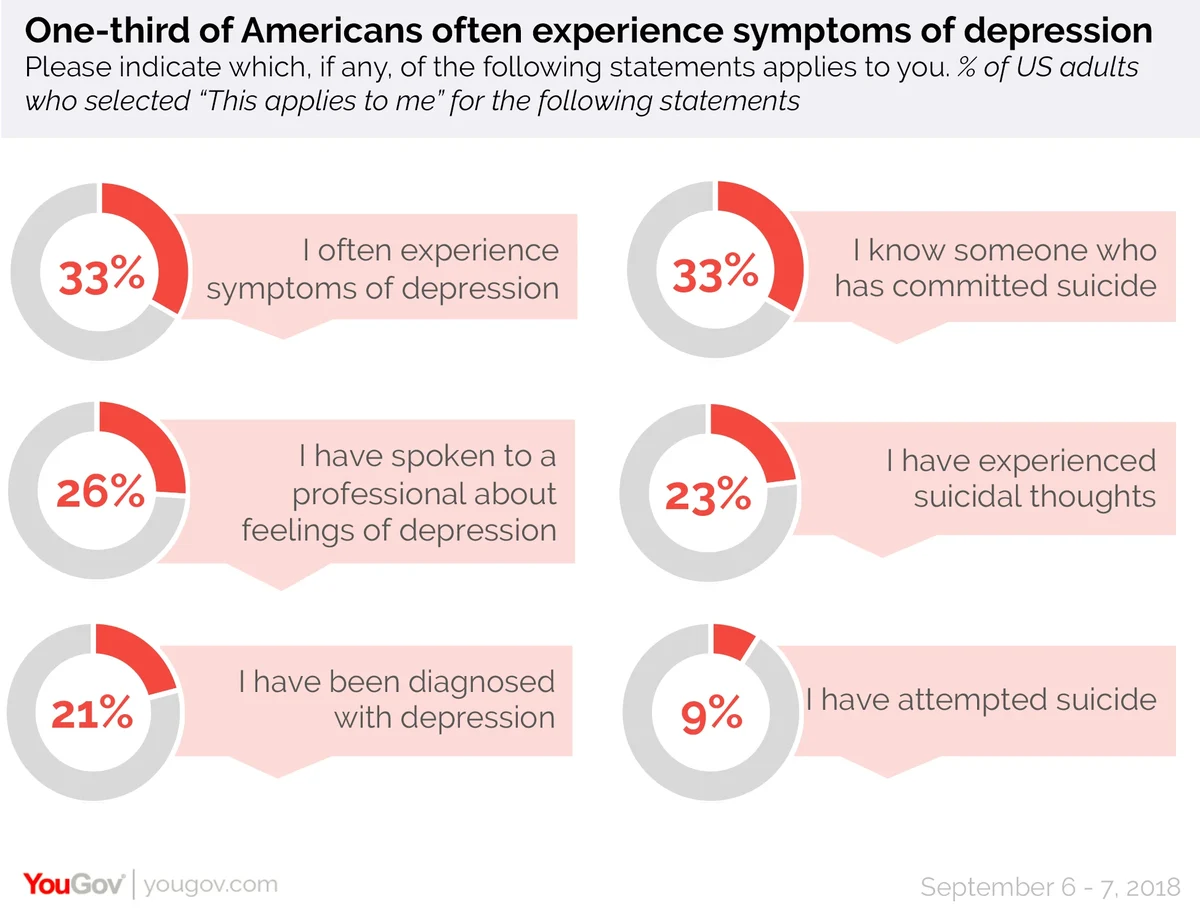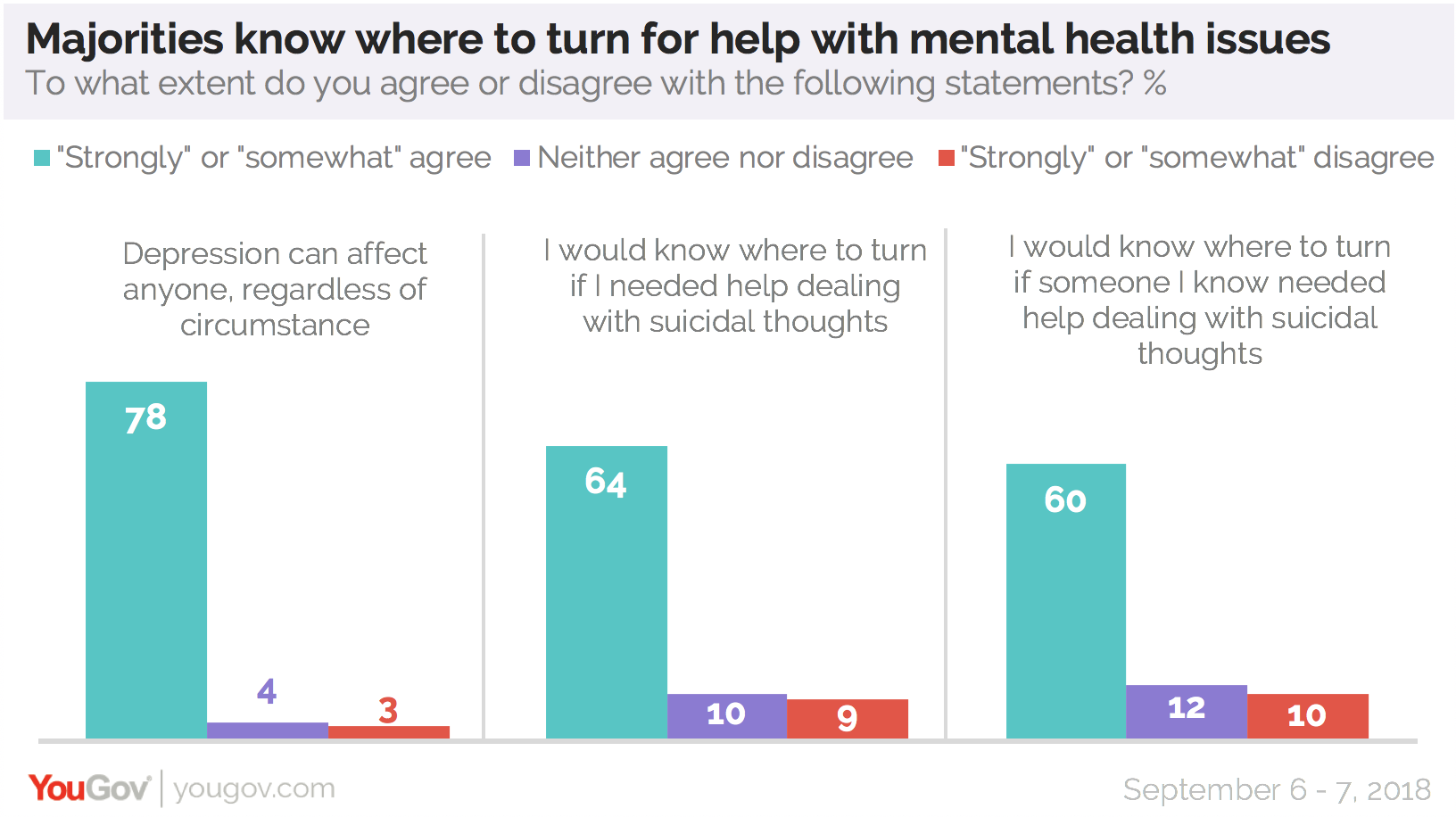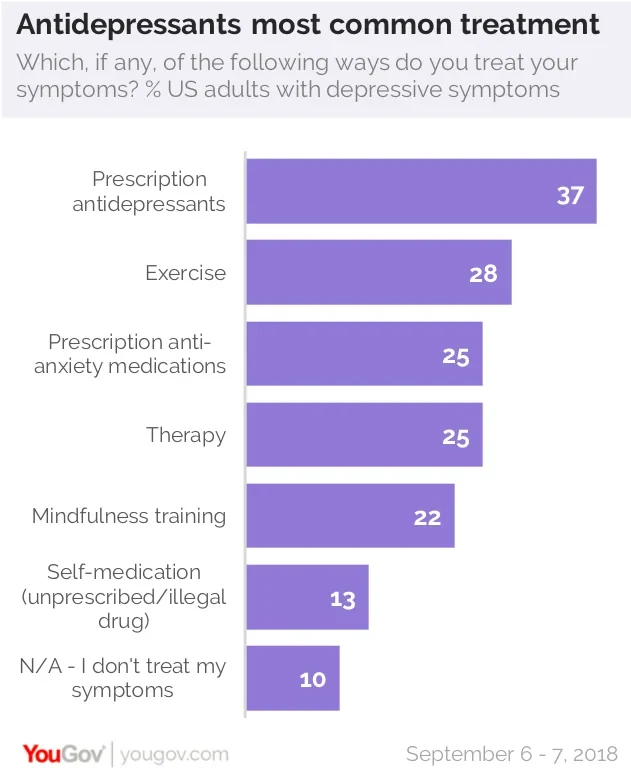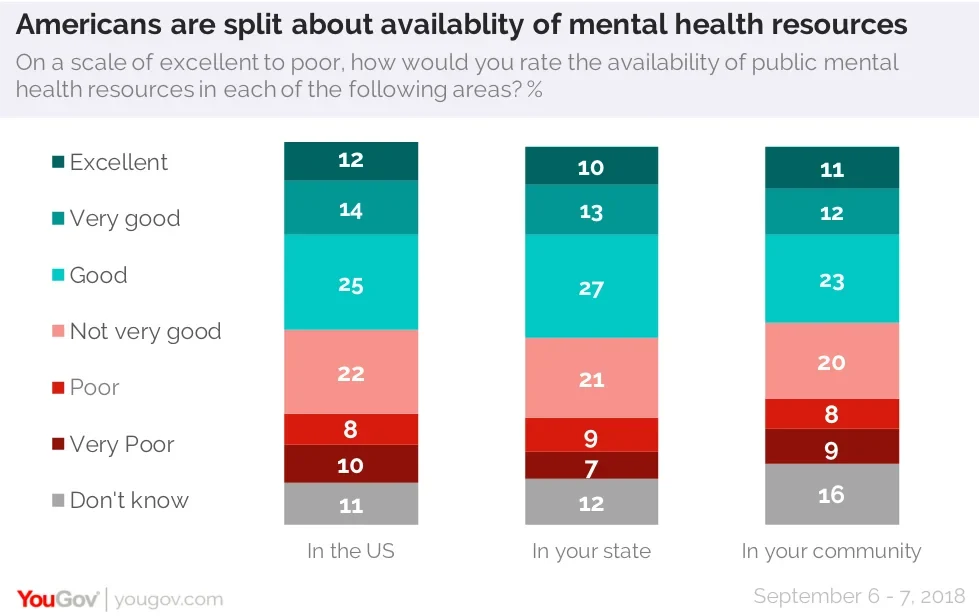
Many Americans know someone who has died by suicide
One-third of Americans say they often experience symptoms of depression
September 10 through September 16 is National Suicide Prevention Week. In order to raise awareness, many people are sharing personal stories and mental health resources for those in need. Suicide has affected the lives of many Americans: 33% of people say they know someone who has died by suicide, while 9% say they have attempted suicide, according to new data from YouGov Omnibus. Almost one-quarter (23%) of Americans say they have experienced suicidal thoughts.
One-third (33%) of Americans say that they often experience symptoms of depression, and about one in five (21%) report that they have been clinically diagnosed with depression. Symptoms of depression can include sadness, anxiety, apathy, loss of interest or pleasure in activities, hopelessness, and fatigue. While 33% report often experiencing these symptoms, about one-quarter (26%) say they’ve spoken to a professional about these feelings.

Millennials are more likely than older generations to say they’ve experienced symptoms of depression (39% vs 33% of the general population) and suicidal thoughts (30% vs 23%). But they’re slightly less likely than older generations to know someone who has taken their own life. Less than one-third (27%) of millennials have known someone who died by suicide, vs. 34% of Gen X’ers and 38% of baby boomers.
Americans with depressive symptoms are using a variety of treatments. Prescription antidepressants like Prozac and Lexapro are one of the most common ways people say they’re treating these symptoms, with 37% choosing this option. Other common treatments that people reported using included: exercise (28%), therapy (25%), prescription anti-anxiety medication like Xanax or Valium (25%), and mindfulness training (22%).
A majority (78%) of Americans believe that depression can affect anyone, regardless of their personal circumstances. Majorities also say that they would know where to turn if they needed help dealing with suicidal thoughts (64% say this), or if someone they knew needed help dealing with suicidal thoughts (60%).

Approximately half (49%) say they think they would recognize warning signs that a person close to them might be suicidal. According to suicide awareness organization SAVE, some of the common warning signs that a person could be suicidal can include: talking about wanting to die or kill oneself, talking about feeling hopeless, increasing the use of alcohol or drugs, sleeping too little or too much, withdrawing, and displaying extreme mood swings.
Overall, Americans tend to have a generally favorable view of their access to mental health resources. Just over half (51%) used positive words to describe the availability of mental health services in the US, while 50% responded positively about resources in their state, and 46% responded positively about resources in their area.

If you or someone you know may be struggling with suicidal thoughts you can call the U.S. National Suicide Prevention Lifeline at 800-273-TALK or chat online.
See full results here.
Learn more about YouGov Omnibus.
Image: Getty